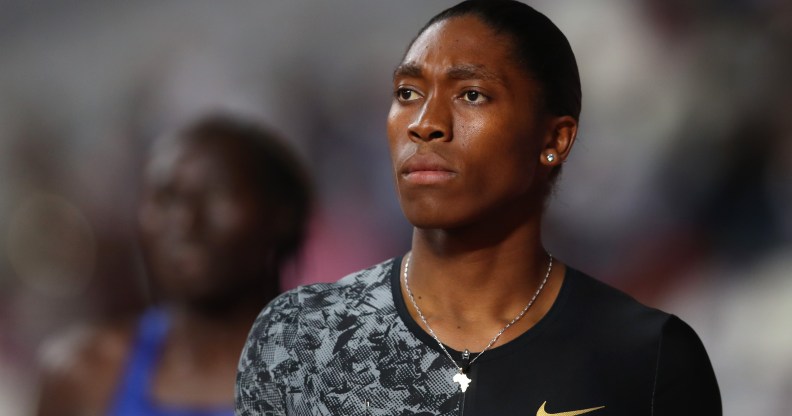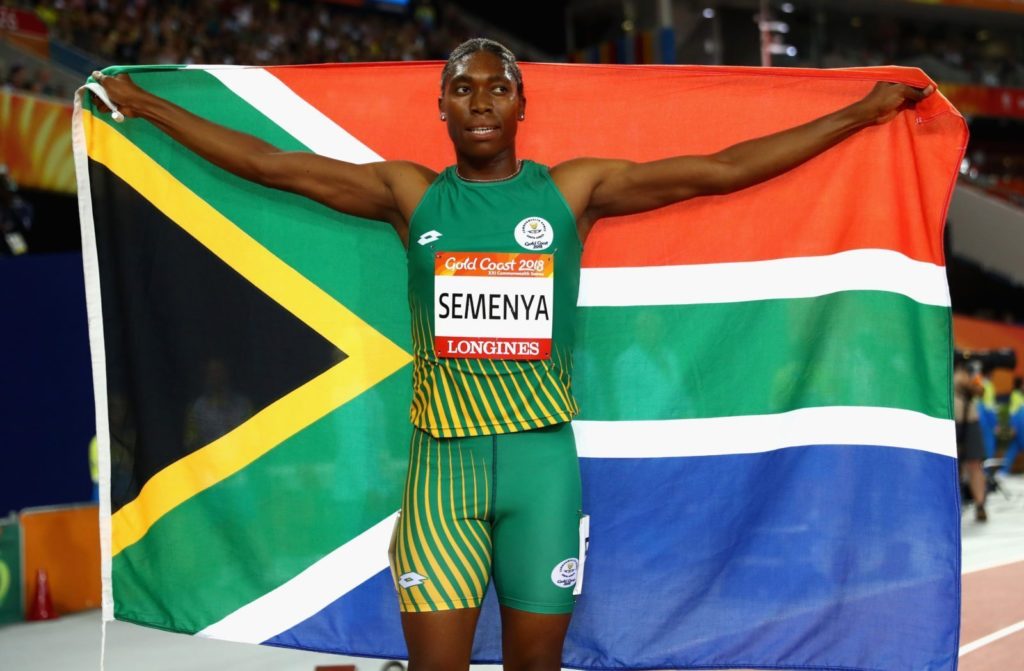Athletes like Caster Semenya could be forced to take gender dysphoria tests

Caster Semenya. (Francois Nel/Getty)
Caster Semenya and other women athletes with naturally high levels of testosterone could face psychological gender dysphoria test, a high-ranking scientist with the International Association of Athletics Federations (IAAF) has said.
Semenya is currently fighting for her right to run competitively after the IAAF ruled that women with a so-called difference of sexual development (DSD) would need to take hormones to lower their testosterone levels in order to compete.
The restrictions were temporarily overturned by the Swiss Federal Supreme Court on June 3, though the IAAF is trying to have them reinstated.
Now, an IAAF official has suggested that Semenya and other athletes like her could undergo outdated tests for gender dysphoria.
Stephane Bermon, director of science and health at the IAAF, said that psychological evaluations are a “very important parameter that tells us if the person has a gender dysphoria, in other words, more prosaically, if they feel good about their gender or aspire to change it, or do not know.”
“If a person says she is a woman and wants to compete in that protected category, she should be delighted to decrease her testosterone levels,” he told the French Journal Sciences et Avenier.
“If it’s not the case, we should ask the right questions on her actual identity and on eventual secondary profit.”
If a person says she is a woman, she should be delighted to decrease her testosterone levels.
Bermon’s suggestions would place the IAAF out of line with the World Health Organisation (WHO), which on May 25 removed gender dysphoria, or gender identity disorder, from its list of acknowledged mental health conditions.
Following the WHO’s decision Graeme Reid, LGBT+ rights director at Human Rights Watch, said that governments and official bodies “should swiftly reform national medical systems and laws that require this now officially outdated diagnosis.”
Bermon also expanded upon what treatment athletes with high testosterone levels could face, suggesting the contraceptive pill and spironolactone, a drug commonly prescribed to trans women.
He also suggested that intersex athletes with testes could “consider in certain circumstances” undergoing a gonadectomy.
Caster Semenya fights IAAF for right to compete
Semenya has been battling the IAAF since 2018, when the governing body first introduced its limits on women with high testosterone levels.
The South African Olympian filed a complaint with the Court of Arbitration for Sport (CAS), but lost her appeal on May 1 of this year.

Caster Semenya of South Africa celebrates winning gold in the 2018 Commonwealth Games. (Michael Steele/Getty)
As a result, she was told that she could either take treatment to change her natural hormone levels, or else compete in any men’s event of her choosing.
Semenya has repeated time and again that she is a woman and intends to compete as one.
IAAF scientists says discrimination is ‘socially acceptable’
Many have accused the IAAF of discriminating against Semenya as its hormone regulations only apply to the races which she usually competes in, between 400m and one mile.
Bermon insisted that the governing body is not specifically targeting the lesbian runner, but admitted that its rules are a form of discrimination.
He told Sciences et Avenir that the limits had been calibrated so that they “concern a minimum number of people,” which he said is necessary “for the discrimination to be legally and socially acceptable.”
He argued that the rules are “reasonable and balanced” as they allow athletes to take part in other sporting events, adding that such discrimination is necessary to “maintain a man/woman category.”

